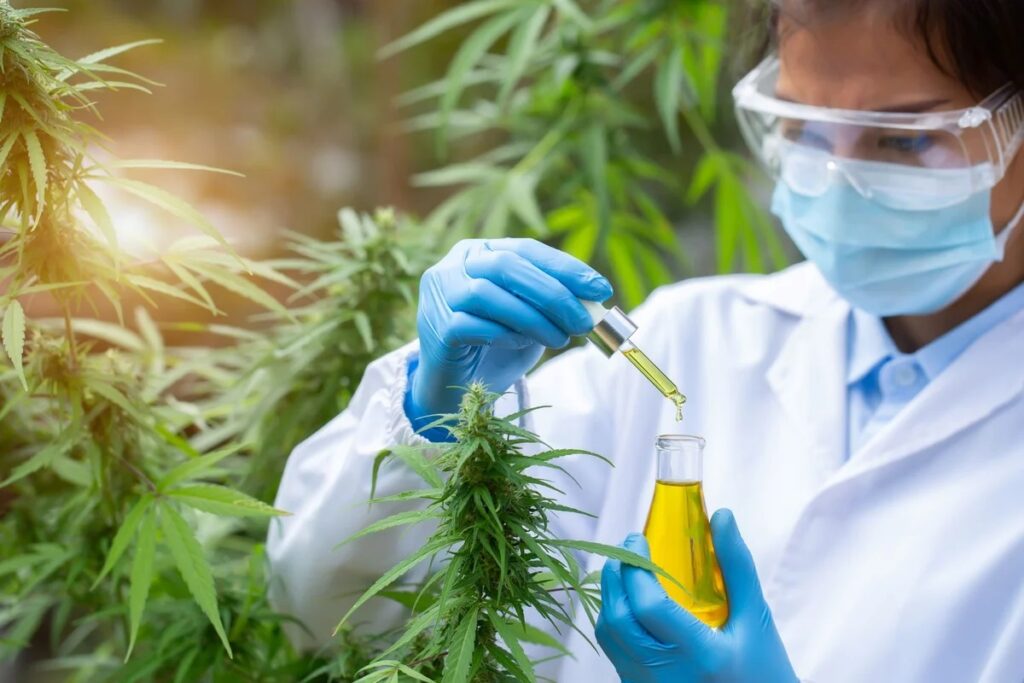Medical marijuana doesn’t have to be tested and has no potency limits, under state law. The adult-use cannabis program, on the other hand, are required to test for potency and contaminants
John Hudak, director of Maine’s Office of Cannabis Policy, said that one of the first things he noticed when taking over the position in 2022, was the lack of testing requirements for medical marijuana, writes The Maine Monitor’s Rose Lundy. Hudak noted that testing is required for medical programs in the majority of other states, calling it a national standard.
Last fall, Hudak’s office tested about 120 medical marijuana products for distributors across the state and found that 42% had at least one contaminant that would remove the product from the adult-use market. Contaminates included pesticides, heavy metals, yeast and mold.
While the Office of Cannabis Policy did not undertake a similar study on potency, the agency tested some products on a case-by-case basis when consumers expressed concerns. That’s when Hudak saw examples of edibles with 120mg THC instead of 10mg.
Hudak said a “massive overhaul” is needed to change a “widely outdated” medical marijuana program, and that testing requirements would be a good start, writes the outlet.
While public health advocates and some state officials are pushing align testing requirements to both programs, there’s opposition from the industry. Last year, lawmakers decided in favor of broad legislation aiming to deal with the stigma around cannabis, which resulted in even looser restrictions in both programs.
Cost Of Testing Versus Safety And Consistency
Among some arguments from those opposing the testing requirements is the cost of testing. But, Hudak responds that the price of recreational weed has dropped despite the launch of mandatory testing requirements.
“If producing uncontaminated cannabis — that is demonstrated to be uncontaminated — is too expensive, you probably shouldn’t be producing medicine for patients,” he said.
Catherine Lewis, who’s on the board of the Medical Marijuana Caregivers of Maine — a nonprofit advocacy group that represents medical cannabis patients, growers and manufacturers, agreed, but raised another important question – “Who is to say it’s contaminated?” She sent portions of the same sample to different labs and got different results – in one the sample was approved, and in the other, it failed. Lewis highlights the importance of clear standards set by the state but also notes that medical marijuana program shouldn’t have the same rigorous testing as the recreational program, due to the smaller size of their operations.
“The state has refused to meet us in the middle with the testing requirements so we’ve had to fight to kill it completely,” she said. “If we allow them to put the laws in place the way they have for adult use, the medical industry and smaller producers would crumble, and patients would lose access to their medicine.”
Keri-Jon Wilson, who started making medical marijuana edibles as a hobby, but in 2015 decided to grow its business, has been standardizing her products even though she was not required under the law. Since 2021, she has been testing all of her batches, aiming to provide safe and accurately labeled products.
For her, the extra cost is worth it as it makes sure you have safe products and can maintain consistency. Wilson thinks it is alarming that there is such limited oversight for a medical product. She adds that compeers in other states drop their jaws when they hear there are no testing requirements in Maine.
“The reality is in the absence of those checks and balances, you really are just taking people’s words (for it) and that’s where it gets a little muddy,” she said.
H/T: www.benzinga.com




